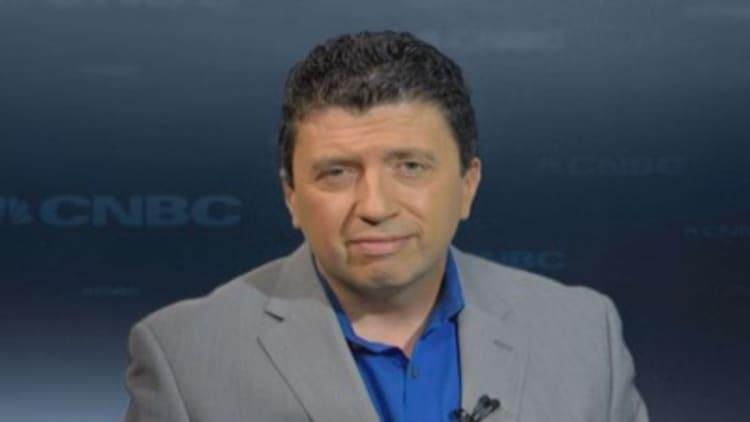
Life is about to get more difficult for the nation's big banks but possibly a whole lot easier for the small ones.
As Congress enacts stricter regulations for large financial institutions and ponders future measures, there's growing anticipation that it is moving closer to steps that would exempt those not considered systemically important from the tough new oversight provisions.
On the table now is a provision that would increase the amount of assets a bank would need to hold before being considered a systemically important financial institution, or SIFI. A proposal in front of the Senate Banking Committee would raise that ceiling from $50 billion to $250 billion, and one analyst believes that despite ever-present gridlock in Washington, the SIFI threshold move likely will get through in the months ahead.
"We remain optimistic that the Senate Banking Committee will advance bank SIFI asset threshold legislation no matter the outcome of the midterm elections as there has been a clear divergence in the view of the banking industry on Capitol Hill between the money centers and all other banks," Compass Point Research & Trading analysts Kevin Barker, Isaac Boltansky and Jason Stewart said in a note to clients.
"Given the political landscape no matter the outcome of the midterms, there are very few legislative efforts to be optimistic about in 2015 but we believe there is the legislative capacity to pass a bank SIFI asset threshold change in the next Congress," the analysts added.
Read MoreThrow away the key! Pols want bad bankers jailed
Compass Point assigned a 60 percent chance that Congress will raise the limit in 2015.
If it comes to pass, the analysts believe a slew of banks will benefit. Those below the new $250 billion threshold could see a 4 percent boost to earnings per share across the board, a number that could grow to 7 percent for those that used extra cash available to buy back shares.
"We do not see this level of capital return as something that can happen quickly; rather it is a measure of the potential tailwind to EPS over several years as a bank moves towards a more efficient capital structure," Compass Point noted.
The banks they see as receiving the biggest benefit, due to higher capital ratios, are Zions Bancorp, Regions Financial, KeyCorp and Comerica. Huntington Bancshares, Discover Financial Services, New York Community Bancorp and First Republic also are listed as key beneficiaries.
In all, 16 of the 30 banks currently included under the Comprehensive Capital Analysis and Review process would be exempted if the new standard passes.
Read MoreFed to toughen surcharges for biggest banks
Officials at the Senate Banking Committee did not respond to a request for comment, but there appears to be strong support for the change.
The Bipartisan Policy Center—a nonprofit founded by former Sens.Howard Baker, Tom Daschle, Bob Dole and George Mitchell—has supported the proposal as a way to focus regulator resources on institutions that pose an actual danger to the financial system.
"These smaller banks are generally not nearly as interconnected as the largest financial institutions. Most operate in distinct regions of the country and have limited exposure to foreign investments." the center said in a report. "As such, it is extremely unlikely that the failure of any one of these banks would produce domino effects with systemic consequences for either the U.S. or international banking sectors."
Read More
Under the current proposal, there are three options, with the $250 billion threshold considered the highest probability. Congress also will consider changing the threshold to $100 billion, or adopting a more "qualitative assessment" that would consider other factors besides asset size when considering systemic importance.
—By CNBC's Jeff Cox






